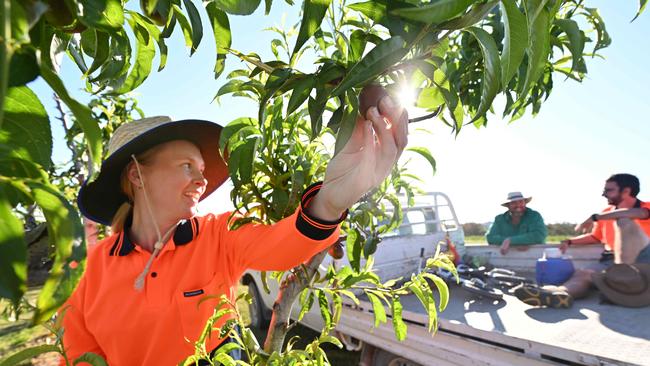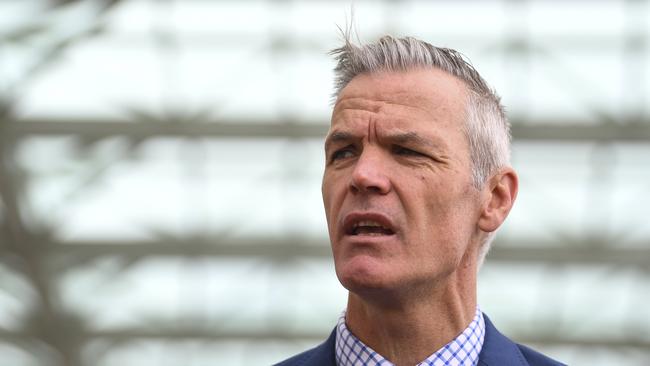Farmers demand worker visa solution
The National Farmers’ Federation have renewed calls for a “purpose-built” visa for ag, with more than 100,000 jobs vacant across the food supply chain.
Farmers have demanded the federal government introduce a “purpose built” visa for agriculture to replace the current “mixture of haphazard solutions” and better address the industry’s ongoing worker shortages.
While the largely defunct Australian agriculture visa was all but shuttered when Labor came to office last year, National Farmers’ Federation chief executive Tony Mahar said local farm businesses still needed “a dedicated visa for agriculture”.
“The reality is we do not have a migration stream designed for agriculture and that’s what our industry desperately needs,” Mr Mahar said.
An Australian Chamber of Commerce and Industry and NFF summit held in Brisbane last week heard there are 100,000 positions vacant across Australian agriculture.
Mr Mahar’s comments follow a scathing review into the nation’s migration system released last week by Home Affairs Minister Clare O’Neil, who said Australia’s migration system was “broken” and promised sweeping reforms.

The review found current Commonwealth visa settings provided “limited and inflexible” access to lower-paid labour, particularly in the agriculture and tourism sectors.
It also included a proposal for working holiday-maker visa holders to not be compelled to work for a second or third-year visa extension.
Mr Mahar said that recommendation if introduced would be “disastrous” for farmers reliant on backpackers as “an incredibly important source of seasonal labour”.
More than 166,000 WHM visas were granted until March 31 this financial year, comparing favourably to the 149,000 in 2019-20. Only 39,000 were granted in 2020-21 and 100,000 in 2021-22 when Covid-related travel restrictions applied.
The figures, released to The Weekly Times by the Department of Home Affairs, also shows there were 81,000 WHM visa holders offshore on April 14 ready to travel to Australia and 6000 applications in line to be processed.
A Home Affairs spokeswoman said the government recognised that WHMs provided an important “cultural and economic contribution” to Australia.
“Including through their role in filling skills and labour gaps and job creation in associated industries and businesses,” she said.

Despite the continuing popularity of the WHM visa, the federal government has shifted its focus to sourcing low-skilled workers through the Pacific Australia Labour Mobility scheme.
More than 37,000 low-skilled workers have arrived in Australia under the scheme so far this financial year, with the government planning to further expand intake.
While Mr Mahar commended the government for improving the PALM scheme, he said it was “shortsighted” to believe it would solve the food supply chain worker shortage and was often inaccessible to small family growers.
He said the industry needed more avenues to skilled, semi-skilled and non-seasonal workers and programs, similar to Canada’s international program, offering transition to permanent residency.
The Ag Visa was specifically designed to allow family farmers, which make up the lion’s share of Australian agriculture, to recruit the workers with the skills they need, for the time they need them.
Nationals leader David Littleproud told The Weekly Times that the ag visa would likely have alleviated some worker shortage pressure across regional Australia and “Labor’s decision to scrap this visa is unconscionable and is a massive kick in the guts for our farmers.”




